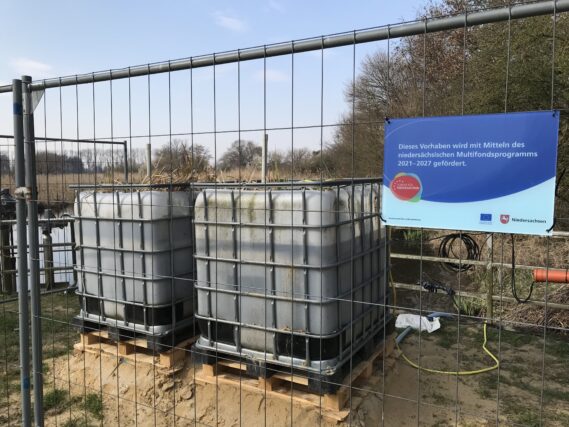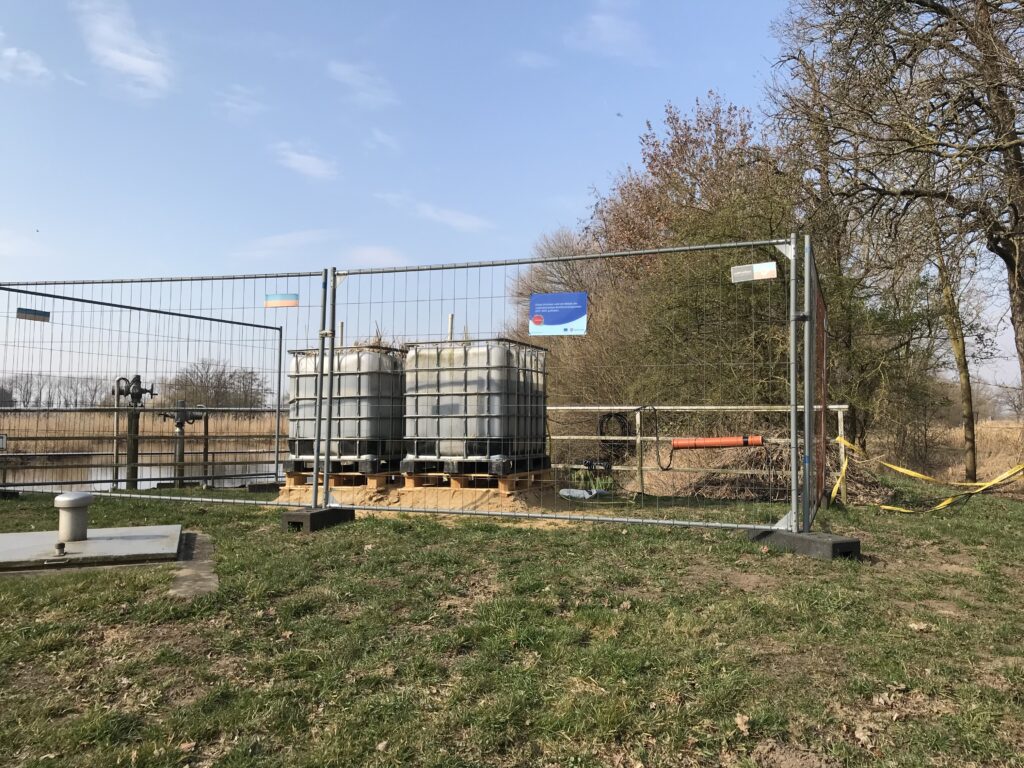Funding approval for € 5 million for the Steinhof wastewater treatment plant
Trace substances to be filtered from wastewater using an innovative new process
Last year held some encouraging news for the Braunschweig Wastewater Association, based in Wendeburg. Just before Christmas, the company received a positive approval: a grant of €5 million was approved from the European Regional Development Fund (ERDF) and the state of Lower Saxony’s „Strongly Developed Region (SER)“ program area.
The funding is tied to a massive construction and investment program planned for the Steinhof wastewater treatment plant.
The association is thus responding to increasing future EU requirements regarding the treatment performance of certain municipal wastewater treatment plants. Specifically, it involves the integration of a fourth treatment stage at the wastewater treatment plant to reduce anthropogenic trace substances. These are micropollutants in very low concentrations, such as pharmaceutical residues and microplastics.
Previous studies and research projects explored possible treatment options. The specific characteristics of Braunschweig’s wastewater treatment system, including sewage farms and agricultural irrigation, and the resulting requirements were not lost sight of. The result of these extensive investigations was the elimination of trace substances from the wastewater stream using activated carbon.
Two different variants are being implemented. In one variant, powdered activated carbon is added to the treatment process in a contact tank at the wastewater treatment plant. A downstream membrane ultimately filters out the carbon and the accumulated trace substances. This is an established process in the field of wastewater treatment. The conversion of part of the existing irrigation fields to a soil filter enhanced with activated carbon represents a new, innovative variant. The focus here is on using significantly fewer raw materials and generating significantly less waste by combining different treatment processes in the filter. An efficiency of > 85% can be assumed for both processes.
The measures are currently being planned so that they can be put out to tender. It must be taken into account that the planned conversion will interfere with ongoing operations. Since wastewater is constantly generated and must be disposed of, this presents a particular challenge.
By integrating a fourth treatment stage of this type, the association is taking an innovative new approach that is unprecedented in Lower Saxony and Germany. To date, there is only one comparable facility, the Kaast wastewater treatment plant in North Rhine-Westphalia. However, there are neither sewage farms nor agricultural reuse facilities there.
„This trace substance elimination project is far more than just a technical undertaking. It is a sustainable contribution to protecting the environment and promoting ecological diversity and quality of life. As the Braunschweig Wastewater Association, we want to take this important step toward sustainable development and maximize the positive impacts for our region,“ explains Peter Edelmann, Association Chairman.
Currently, wastewater from the city of Braunschweig and some municipalities of the Gifhorn Water Association is treated in three stages at the Steinhof wastewater treatment plant. First, mechanical treatment takes place, followed by biological treatment. The third stage takes place either in the irrigation system or in the irrigation fields, using plants and the microorganisms contained in the soil. According to EU regulations, agricultural irrigation already requires the sanitization of water for reuse. According to this globally unique „Braunschweig Model,“ approximately 20 million m³ of wastewater are treated annually.










